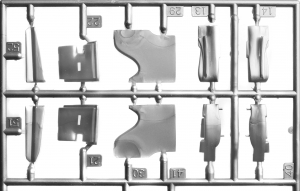For women suffering from pelvic organ prolapse or stress urinary incontinence, transvaginal mesh manufacturers promised surgical solutions that would help to correct their health issues. Unfortunately, transvaginal mesh or TVM turned out to be a very dangerous product that caused a number of complications including significant pain; recurrent prolapse and breakdown of the mesh in the body. 
Since transvaginal mesh not only failed to perform as promised but also caused harm, many patients have taken action against TVM manufacturers. In one lawsuit against a TVM manufacturer, plaintiffs are alleging that the manufacturer knowingly used a plastic that was not safe for use in people. Our Boston transvaginal mesh lawyers know that TVM from all manufacturers has generally proved to be dangerous. However, this new evidence indicates that at least one manufacturer may have gone beyond simply failing to disclose risks and instead intentionally acted in a way likely to cause harm.
Emails Show Transvaginal Mesh Manufacturers Intentionally Put Patients at Risk
According to a June 26 Bloomberg news article, CR Bard may have knowingly sold vaginal mesh devices that were made of a plastic material manufacturers had warned was not suitable for implantation in humans.
The plastic was made by a Chevron Phillips Chemical Co. unit and was resin-based. Chevron Phillips Chemical Co. had registered a warning that the mesh should not be permanently implanted in people and after this warning was issued, managers at Bard’s Davol unit knowingly used the plastic in mesh units intended for the treatment of hernias. Now, plaintiffs in a transvaginal mesh claim contend that this same unsafe mesh was also used not just in hernia products but in transvaginal mesh products as well.
Evidence indicates that CR Bard Inc. acted intentionally to use this unsafe plastic, rather than just simply using it by mistake. For example, two emails were sent in 2004 and in 2007 by Davol executives warning colleagues not to tell Chevron Phillips or other manufacturers of the resin-plastic that the plastics were being used in medical devices that were placed in people.
One of the e-mails sent by a top Bard executive, who is now a vice president at the company, expressly cautioned that Chevron Phillips would probably “not be interested in a medical application due to product liability concerns.” The same email indicated that Davol shouldn’t be mentioned to any of the manufacturers because the manufacturers likely were unaware of C.R. Bard’s implant applications.
These emails are extremely incriminating because they can be used to demonstrate that top executives in the company knowingly made the decision to use a plastic that was proven unsafe, despite an awareness that people could get hurt.
It is not unreasonable to believe that the same plastic was used not just in mesh used to treat hernia injuries but also in patients undergoing surgical procedures with transvaginal mesh. Plaintiffs in TVM cases may thus be able to use the emails to strengthen their claim against the medical device company, by presenting the emails as proof that Bard intentionally took dangerous risks with patient health.
If you or a loved one is experiencing transvaginal mesh complications in Massachusetts, call Jeffrey Glassman Injury Lawyers for a free and confidential appointment — (617) 777-7777.
More Blog Entries:
Transvaginal Mesh Company Pays $55.4 Million to Settle Some TVM Cases, Boston Personal Injury Attorney Blog, June 26, 2013
 Boston Personal Injury Attorney Blog
Boston Personal Injury Attorney Blog

